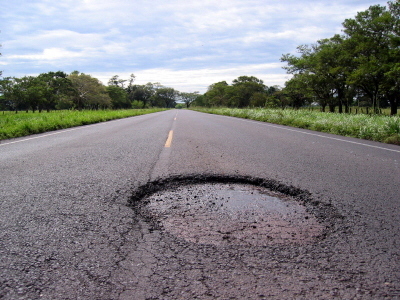New Zealand’s long skinny, swampy, steep terrain has never made for easy road building and it’s a tribute to our pioneering forefathers this country has the roads it does, going to the places they do.
But the escalating impact of climate change, bringing rainfall events of ever greater intensity, is making keeping that spiderweb network of 76,000km of rural roads tougher to keep open, let alone improve.
Rural local roads are already the poor relative to their state highway links.
For 2021-22 an average of $170,000 per km is budgeted for state highway improvements, compared with only $14,700 a km for local roads.
In the past year, the rural road repair bill has mounted to eye-watering levels that local councils simply are not capable of meeting as storm after storm has laid waste to hundreds of kilometres across Northland, Marlborough, West Coast and Tairāwhiti.
Marlborough alone, after facing $80 million of costs from a storm last year, now has one for almost $400m in repairs across the region after the August storm events.
The fragile but valuable Kenepuru Road that stretches well into the sounds needs $160m to rebuild it properly, a cost of $160,000 for every property it connects to the mainland.
This more than gobbles up the $25m made available for the entire region’s network’s repair.
It and other roads like it now face serious questions about whether they will ever be rebuilt to the standard most ratepayers will expect and risks leaving locals looking to the water as the only access option.
As Minister for Emergency Management and Associate Minister for Local Government, Kieran McAnulty has a unique perspective on the challenges climate change is bringing to rural communities and the costs to local governments trying to pick up the pieces in the wake of such events.
He doesn’t mince his words, saying some tough conversations will need to be had as the national repair bill mounts.
Waka Kotahi is also seeking a harder look at specific roads before stumping up for their repair.
This caution over throwing what could be good money after bad echoes the hints also made by insurance companies on their future willingness to cover properties that have become significantly riskier in recent years due to repeated flood events.
The climate change impact is at least also prompting central government to look harder at the burdens imperilled local councils face in trying to grapple with these challenges.
A recent hefty 260-page local government review calls for more equitable funding be made available to councils, a review of current rating systems, and new ways to meet growing shortfalls.
There is urgency around this as the intensity of storm events increases in districts with higher portions of fixed income earners that are often already at their ratings limit.
For many of these rural communities the loss of their main road in and out will quickly see their demise.










